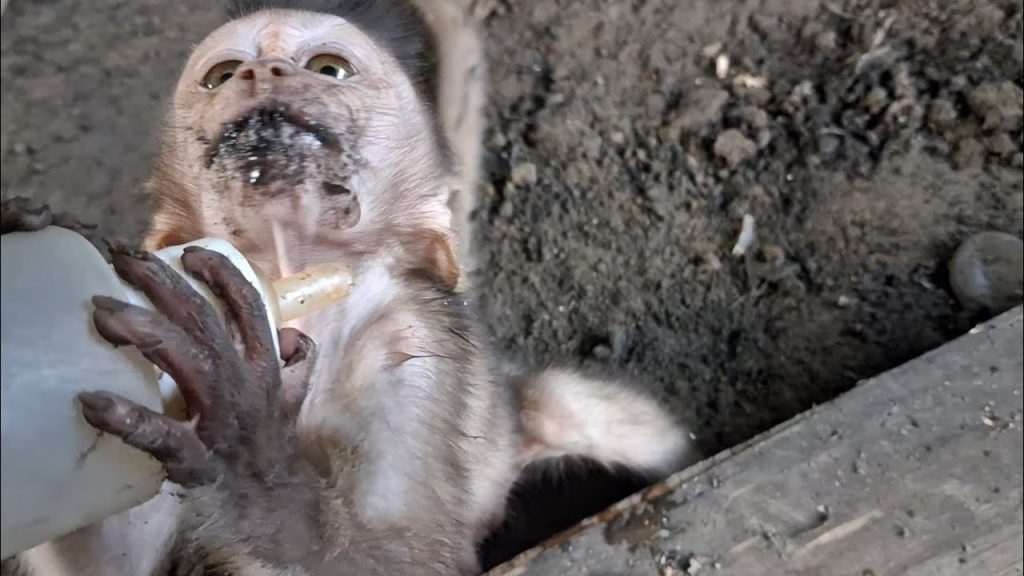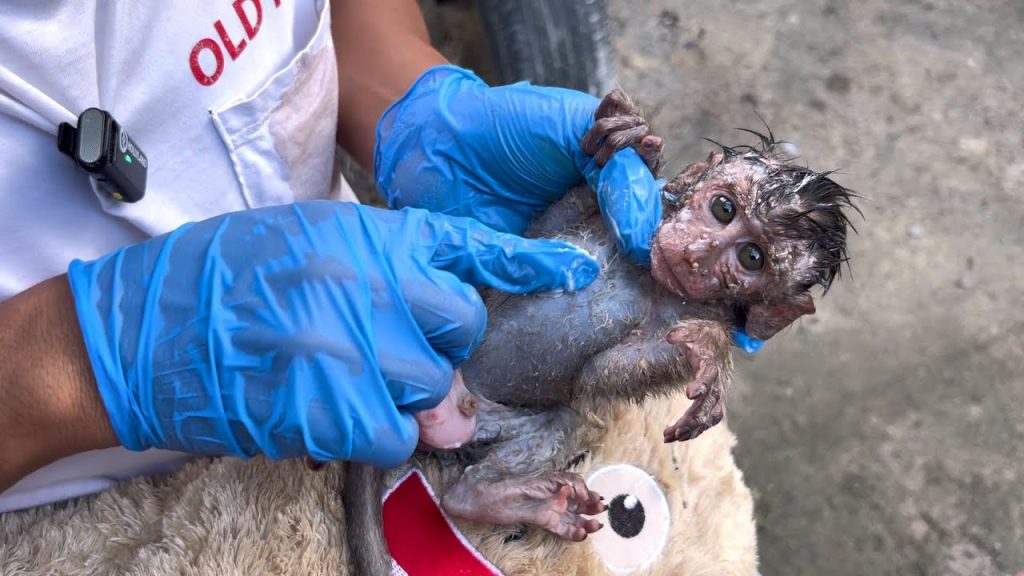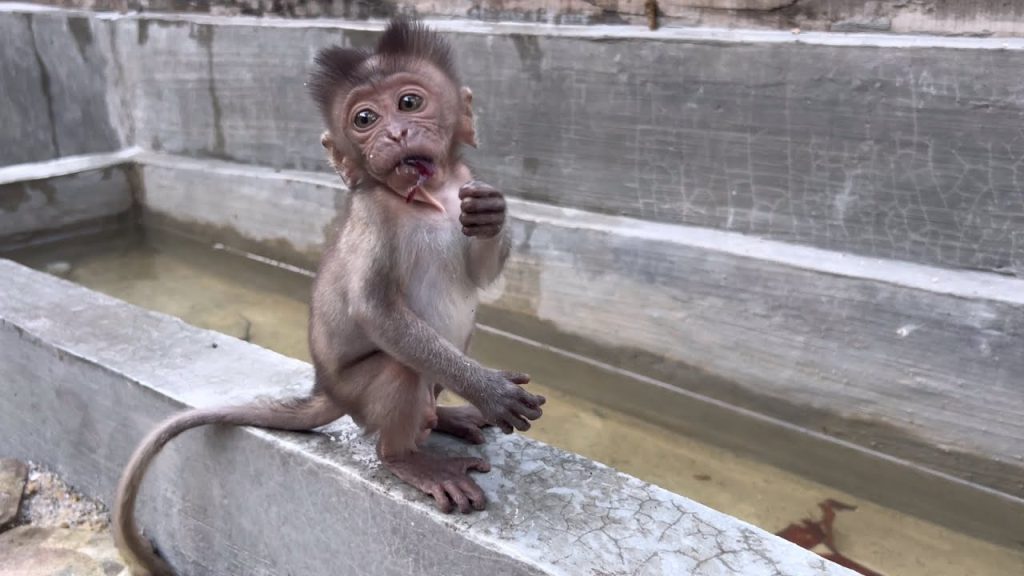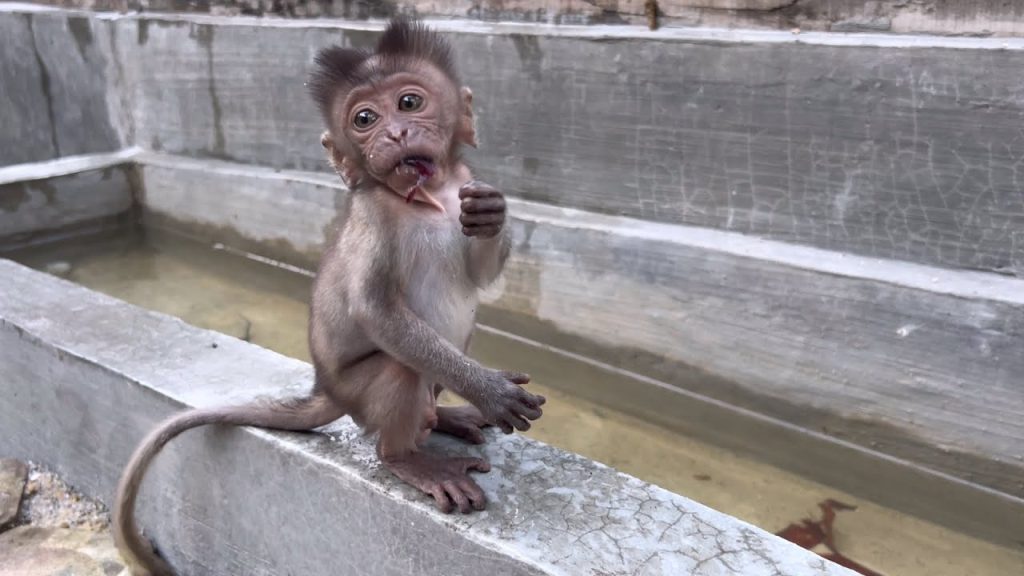
When caregivers decide to give water to baby monkeys who are actively playing, they are not only providing a basic biological necessity — they are shaping the internal habits that will influence how each youngster manages energy, comfort, and self-regulation throughout life. Playtime looks like chaos, charm, and comedy, but at a deeper physiological level it is a major metabolic event. Those tiny bursts of sprinting, sudden chasing, clinging, rolling, wrestling, climbing and leaping create rapid heat load, rapid breathing pattern shifts, and rapid consumption of internal fluid reserves. Dehydration in small primates does not always show as dryness — sometimes it first shows as irritability, sudden aggression, or emotional collapse. Water is not simply liquid: it is emotional balance.
Baby monkeys don’t pause on their own. They do not have an internal clock that says “break time.” Their play-circuit — mostly dopamine-driven — pushes them to continue even when their body quietly begins to slip into stress. That is why it is the caregiver’s duty to insert structured water breaks into play sessions. Offering water calmly — without turning it into distraction, reward, or high drama — teaches the brain that hydration is routine, safe, expected, and not a scarcity competition. When the water appears in the middle of high-energy play, the world feels predictable. And predictability builds trust.
The style of offering water matters. If the cup is brought too suddenly, the nervous system interprets it as interruption, and the monkey may react with annoyance. If the water is too cold, it can produce a sensory shock that creates avoidance. If the water is presented one at a time with long delay, jealousy activates. The ideal method is small shallow bowl or syringe tip, warm to slightly above room temperature, offered gently, with opportunity for each individual to take turns quickly. The caregiver’s posture must stay calm. The voice should be soft. The moment should feel like a micro-pause, not like “end of fun.”
Then — and this is important — after the drink, play should resume. That final step teaches the subconscious rule: hydration is integrated inside fun, not outside of it. Once this rhythm is learned in youth, these baby monkeys grow into adults whose bodies self-pace more efficiently, whose social aggression drops faster, whose emotional crashes recover more quickly, and whose health remains more resilient through every future burst of joyful movement.


